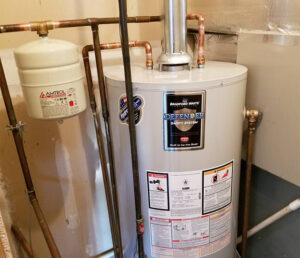Water Heater Replacement – What You Need to Know
Water Heater Replacement
Your home’s water heater is a vital yet often underappreciated appliance. It provides your family with a constant supply of hot water and keeps the household water usage within safe limits. Unfortunately, water heaters are not immune to wear and tear. If you’re experiencing issues with your home’s hot water heater, it may be time for a replacement. A professional plumber can help you choose the right size of water heater for your home and assist with your installation.
The cost of a new water heater replacement depends on several factors, including the type of fuel the unit will use, its physical location in the home, and its capacity. In addition, the price of labor to replace your old water heater can vary widely depending on whether your plumbing system is in good condition or needs significant repairs.

If you’re replacing a tank-type water heater, it’s important to select a properly sized unit that matches your household’s hot water usage habits. For example, a two- or three-person household will need a tank that holds 40 to 50 gallons and heats 3 to 5 gallons of water per minute. Larger households will require a larger tank, but it’s crucial not to purchase a unit that is too big, as it could lead to higher energy costs.
Water Heater Replacement – What You Need to Know
A gas-powered water heater’s price can also depend on the location of the unit in the home. If the tank is located in a hard-to-reach place, such as an attic or basement, the cost to install the unit will increase. The price of labor to move and install a gas line will also add to the total project cost, as well as any other modifications required for the new water heater’s installation.
Water heaters are typically stored in a utility room or closet, and the installation of a new water heater will likely involve rerouting existing pipes to connect the unit to your home’s water supply. It’s important to ensure these newly installed lines are correctly routed and fastened to avoid any potential leaks or damage. In some cases, the installers will need to add new venting, drains, and water hookups. These tasks are generally best left to a licensed professional plumber, as they’ll be up to date on local building codes and know how to safely handle plumbing, heating, ventilation, and electrical work.
Many homeowners may attempt to do their own water heater replacement installation, but it’s a job that requires extensive plumbing, heating, and electrical knowledge. It’s also a project that can be hazardous if you don’t follow proper safety precautions when working on gas lines and electricity. Hiring a professional to complete your water heater replacement installation will ensure the new unit is up to code and will be safe for years to come.